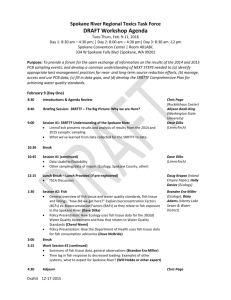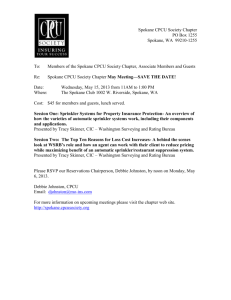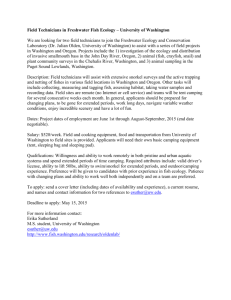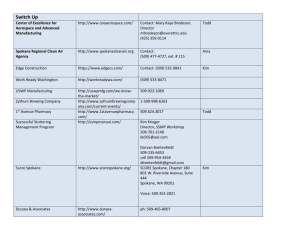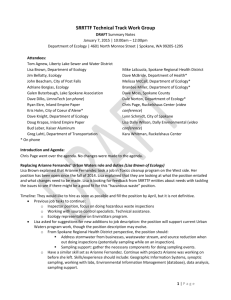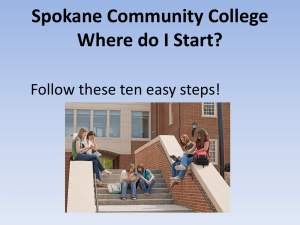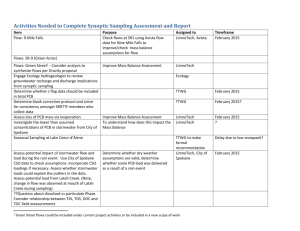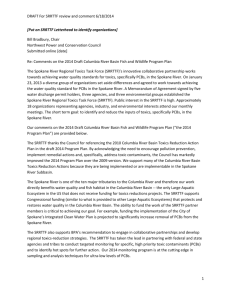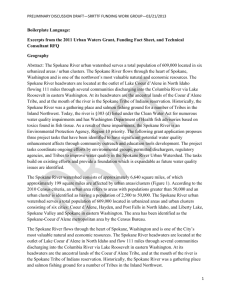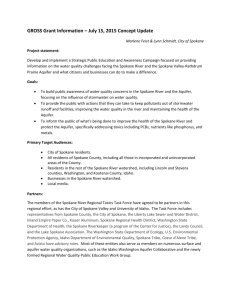Feb-2016-SRRTTF-Workshop-agenda-DRAFT-1-14-16
advertisement
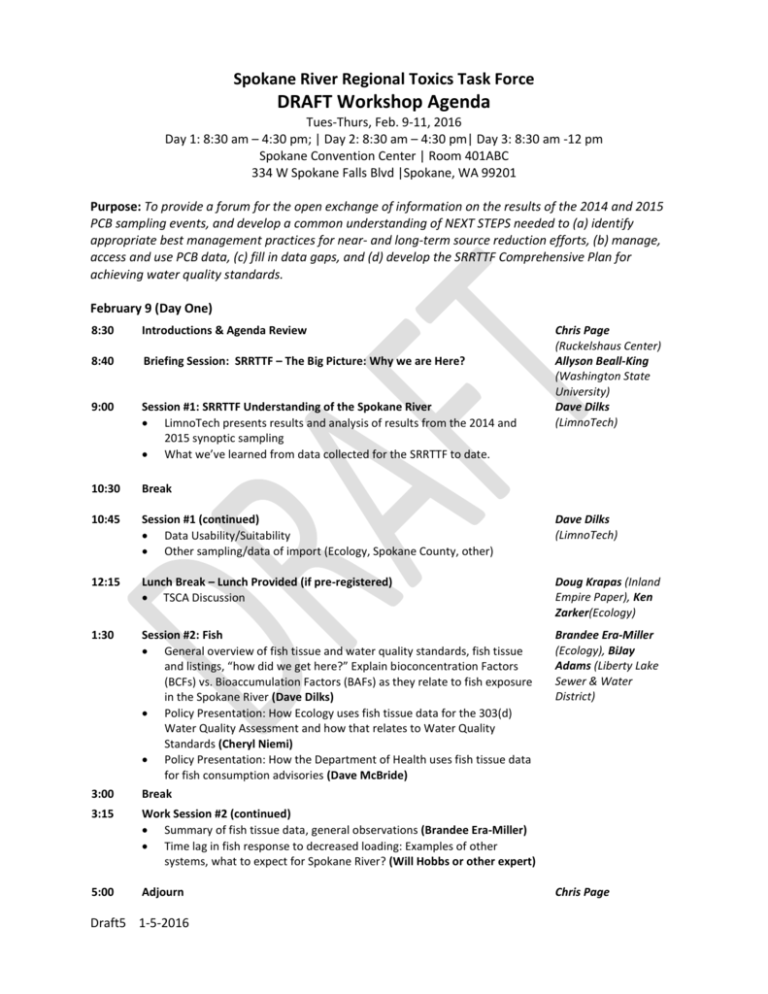
Spokane River Regional Toxics Task Force DRAFT Workshop Agenda Tues-Thurs, Feb. 9-11, 2016 Day 1: 8:30 am – 4:30 pm; | Day 2: 8:30 am – 4:30 pm| Day 3: 8:30 am -12 pm Spokane Convention Center | Room 401ABC 334 W Spokane Falls Blvd |Spokane, WA 99201 Purpose: To provide a forum for the open exchange of information on the results of the 2014 and 2015 PCB sampling events, and develop a common understanding of NEXT STEPS needed to (a) identify appropriate best management practices for near- and long-term source reduction efforts, (b) manage, access and use PCB data, (c) fill in data gaps, and (d) develop the SRRTTF Comprehensive Plan for achieving water quality standards. February 9 (Day One) 8:30 Introductions & Agenda Review 8:40 Briefing Session: SRRTTF – The Big Picture: Why we are Here? 9:00 Session #1: SRRTTF Understanding of the Spokane River LimnoTech presents results and analysis of results from the 2014 and 2015 synoptic sampling What we’ve learned from data collected for the SRRTTF to date. 10:30 Break 10:45 Session #1 (continued) Data Usability/Suitability Other sampling/data of import (Ecology, Spokane County, other) Dave Dilks (LimnoTech) 12:15 Lunch Break – Lunch Provided (if pre-registered) TSCA Discussion Doug Krapas (Inland Empire Paper), Ken Zarker(Ecology) 1:30 Session #2: Fish General overview of fish tissue and water quality standards, fish tissue and listings, “how did we get here?” Explain bioconcentration Factors (BCFs) vs. Bioaccumulation Factors (BAFs) as they relate to fish exposure in the Spokane River (Dave Dilks) Policy Presentation: How Ecology uses fish tissue data for the 303(d) Water Quality Assessment and how that relates to Water Quality Standards (Cheryl Niemi) Policy Presentation: How the Department of Health uses fish tissue data for fish consumption advisories (Dave McBride) Brandee Era-Miller (Ecology), BiJay Adams (Liberty Lake Sewer & Water District) 3:00 Break 3:15 Work Session #2 (continued) Summary of fish tissue data, general observations (Brandee Era-Miller) Time lag in fish response to decreased loading: Examples of other systems, what to expect for Spokane River? (Will Hobbs or other expert) 5:00 Adjourn Draft5 1-5-2016 Chris Page (Ruckelshaus Center) Allyson Beall-King (Washington State University) Dave Dilks (LimnoTech) Chris Page February 10 (Day Two) 8:30 Session #3: Comprehensive Plan Inputs planned for inclusion in the comprehensive plan, how estimated, and how everything works together (groundwater, stormwater, wastewater, sediment, tributary inputs, atmospheric deposition, snowpack, water column/sediment dynamics, bioaccumulation in fish). Overview What we know and don’t know about sources and pathways: which components of the Comprehensive Plan will be underdeveloped? Case Studies-What can we learn from other Comprehensive Plans. San Francisco Puget Sound Lake Michigan 10:30 Break 10:45 Session 4: Best Management Practices (BMPs) Introduce BMP concepts, relationship to the Comprehensive Plan, menu Share San Francisco Estuary Institute BMP Toolbox implementation and effectiveness. BMPs and Local stormwater projects - City of Spokane LIDs (success stories) Dave Dilks (LimnoTech) Sandy Phillips (Spokane Regional Health District) 12:15 Lunch Break All Attendees 1:15 Session # 4 continued: BMP Discussion All Attendees BMP Breakout Sessions Discussion questions or small group problem solving Groups report back 2:30 Session # 5: SRRTTF Next Steps Data Gaps and Prioritization for Next Steps Congener data analysis: implications for source identification and toxicity Develop 2016 Scope of Work for SRRTTF 5:00 Adjourn Draft5 1-5-2016 Lisa Dally Wilson (Dally Environmental) February 11(Day 3): Morning Only 9:00 Session #6 – Database Management Expected Outcome: Recommendation to Task Force regarding Data Management Tool and Implementation. Summary of the work of the Data Management work Preliminary needs assessment -resources required / cost per level of need, cost to maintain, and cost to buy. Ecology EIM – Archival Project Specific data management ?? Breakout Sessions Panel Discussion: Experts (Tim, Beth Schmoyer, DRBC, Ecology EIM rep) 12:00 Adjourn Draft5 1-5-2016 Adriane Borgias (Ecology)
